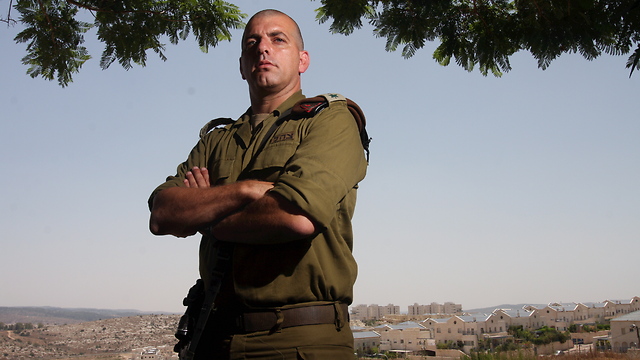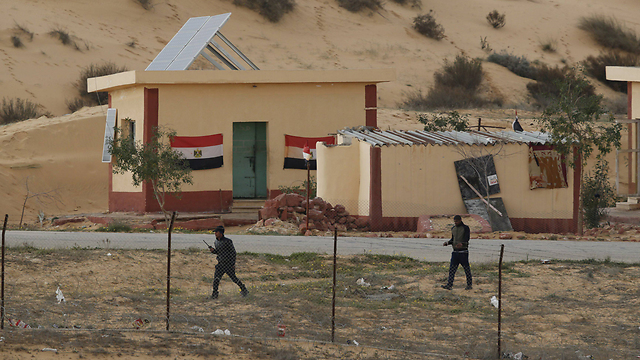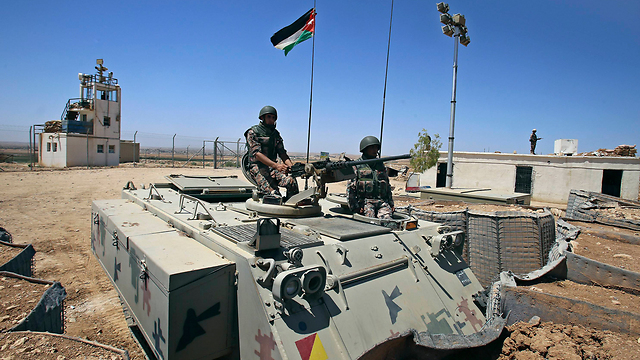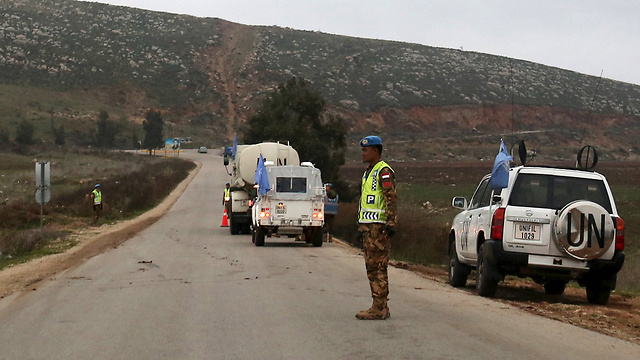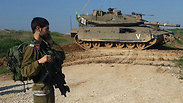
Israel's military diplomacy
Clandestine ties with Jordan, secret coordination meetings in Moscow, encrypted conference calls with the Americans, joint drills with the Greeks, and relations with military attaches from over 30 countries. As the Foreign Ministry collapses and Israel's international standing is undermined, the IDF is coming out ahead on the diplomatic front.
There was another report this week of an alleged Israeli airstrike in the Damascus area. Israel isn’t touching the subject, the Russians are quiet, the Americans are quiet, and even the Syrians are quiet. This quiet isn't a coincidence - behind this silence lies a complicated web of agreements and understandings serving the interests of the strongest and most influential actors who are involved in the region: the US, Russia, Iran, and Israel.
Everyone speaks to everyone - directly and indirectly - and everyone coordinates with everyone. This is the secret diplomacy of those in uniforms. This is a type of diplomacy which foreign ministries have no hand in. Those whose jobs it is to manage this intricate web, who deal with questions of who flies where and when in Syrian airspace, are the “foreign ministries” of the various armies, who operate primarily under the radar.
In Israel, the effects of this are even more salient. As the Foreign Ministry weakens, and Israel's diplomatic status in the world diminishes, Israel’s alternative diplomacy continues to strengthen. Bodies such as the Mossad’s Tevel Division - which deals in secret diplomacy - and the International Relations Unit of the IDF- whose scope has been widened under IDF Chief of Staff Gadi Eisenkot - have entered into the vacuum left by public diplomacy.
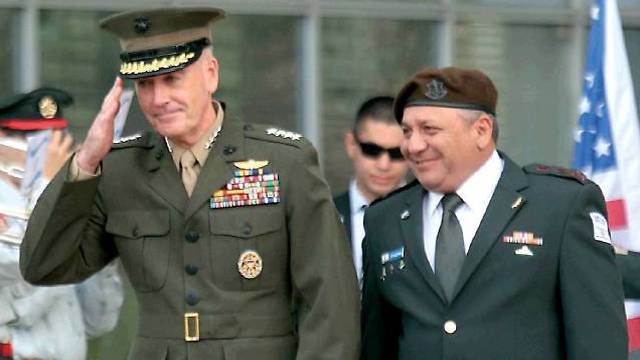
When dealing with them, heads of state and their foreign ministers are not at risk of public criticism, and public opinion doesn’t matter. The foreign relations of these security branches and militaries create an alternative diplomacy to normal, political diplomacy. This even includes countries with which Israel has no formal relations, or which have an interest in hiding their relations with Israel due to pressure put on them by their allies or other regional powers.
A plethora of navies from all over the world sail in the Mediterranean Sea. The Russian navy, which supports the Russian ground and air forces in Syria, has a pronounced presence in the Mediterranean and has no patience towards actors it views as hostile, such as the Turkish navy. When these navies meet on the high seas, they issue threats to each other, lock their radars onto one another, and it will serve as no surprise if they start shooting at each other.
However, when Israeli naval vessels come into the area, the Russians simply ignore them. This is also no accident. In the language of military diplomacy, no one talks about anything that even sounds like military coordination with the Russians. The Americans are willing to accept the semi-secret relations between Israel and Russia, on the condition that it doesn’t go past the realm of military cooperation meant to prevent any misunderstandings that could lead to an exchange of fire.
'ICE' Forum
The coordination between the armies is done by the military liaisons; the Israeli military liaison in Moscow - Col. Tzafrir Orpaz - and his Russian counterpart who serves in Tel Aviv. There is also a team operating which is headed by Deputy Chief of Staff Yair Golan. At his side is the head of the Operations Directorate, Brig.-Gen. Aharon Haliva, and the head of the Foreign Relations Unit of the IDF Planning Directorate, Brig.-Gen. Avi Peled.
They work with their Russian counterparts, who come to Israel for meetings about once a month. If there is an unexpected incident, such as a Russian radar lock onto an Israeli ship or plane, it is dealt with immediately. For more extreme incidents, the heads of these brigades - either the foreign relations brigade or the operations brigade - will immediately fly to Moscow to seek explanations or smooth things over.
The relations with the US military are on an absolutely different level. There is a series of bilateral agreements between the US and Israel on information sharing and security cooperation, and it is likely that Israel knows exactly what the US is doing in Syria.
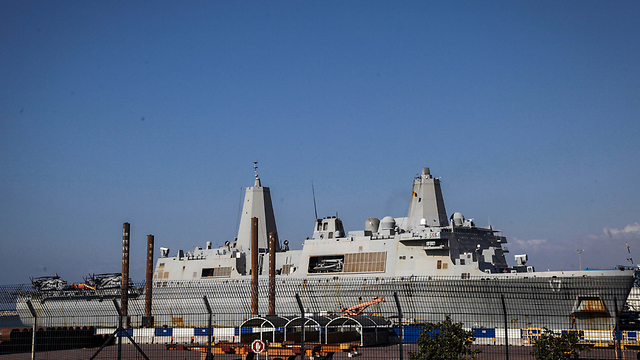
The Americans hold video conferences on encrypted channels to which very few nations have access. One of these nations is Israel, so the head of the Foreign Relations Unit in the IDF must spend a lot of time communicating with his American counterparts in both CENTCOM (United States Central Command) and EUCOM (United States European Command). For years now that a forum called "ICE" (Israel, CENTCOM, EUCOM) has been meeting - usually at the office of the IDF deputy chief of staff - to discuss security issues and the strong cooperation between the two armies in the Middle East.
In fact, the more of a diplomatic cold shoulder Jerusalem is getting from Washington, the warmer of an embrace the US administration has instructed the American Military to give the Israeli defense establishment.
Bypassing Jerusalem
In recent days, Brig.-Gen. Avi Peled presented the yearly work plan for the Foreign Relations Unit; a thick booklet titled “All-embracing International Military Relations.”
The Foreign Ministry can only look on with jealousy. From the IDF’s standpoint, Israel is a really popular country. The booklet shows that the scope of military cooperation between Israel and foreign nations this year will be unprecedented, both in the number of countries the “Foreign Ministry of the IDF” will work with, and the scope of the activity: joint training missions, military cooperation, information sharing, visits of high ranking officials, and other secret matters.
The world is starting to understand that there is an enemy not limited by any national border - global jihad. These mutual interests create ties between enemies. These ties includes countries that seek trade - either directly or indirectly - intelligence, learn fighting tactics against international terrorist groups, increase national defense and more.
Israel – through the efforts of the IDF's Foreign Relations Unit – is taking advantage of this world problem to create ties in places it previously had none. There are quite a few countries that seek to go around the Israeli Foreign Ministry – either because of political reasons, or because they recognize the weakness of the Israeli Foreign Ministry – and want to have some sort of ties with the Jewish state without being associated with Israeli policy.
These countries develop relations through the “back door” of military diplomacy. The group even includes European nations that have vast diplomatic ties with Israel but internal pressure and the BDS Movement force them to play down the relations. In the last year, these countries have deepened their relationship with the IDF in light of the ongoing fight against terror and international involvement in the war in Syria.
By the way, any fighter jet that takes off from an aircraft carrier in the Mediterranean, from Cyprus, or an air force base anywhere in Europe towards Syria, must coordinate flight plans with the Israel Air Force.
For the Foreign Relations Unit, the relationship with the United States is of the highest importance, and most of the IDF’s efforts are concentrated on it. After the US, there are eight countries considered to be of high importance, one of which is India.
Thirty percent of Israel’s military exports go to India, and the high level of cooperation between the militaries - from joint R&D to information sharing - happens on a day-to-day basis. India is an example of a country that for years hid its relationship with the Jewish state, but, after the elections in 2014 the rise of right-winger Nerandera Modi, the close military relations between the two countries was translated into a strong political relationship.
The same is true of Egypt. At the end of last week, Energy Minister Yuval Steinitz boasted about the close security cooperation between Israel and Egypt and praised the Egyptians' cooperation in in flooding Hamas tunnels between Gaza and Egypt. The Egyptians were furious. There was cause behind the scenes, and even now, the IDF liaisons are trying to repair the damage.
The addendum to the Egypt-Israel peace treaty, which deals with the demilitarization of the Sinai, has long been forgotten. With Israeli approval, Egypt has been allowed to bring in to the Sinai Peninsula 16 infantry battalions with armored personnel carriers, Special Forces units, artillery, apache helicopters, and F-16 fighter jets. They have even been allowed to build a naval base in el-Arish.
From what is allowed to be reported, it is clear that coordination with Egypt in their war against ISIS is daily. The Egyptians coordinate all flights near the border, naval movements in el-Arish, and all troop deployments with Israel. The two sides also coordinate in order to avoid accidental exchanges of fire along the border.
However, sometimes the communications with countries Israel has a clear interest in maintaining good ties with is complicated by having too many cooks in the kitchen. There are numerous players operating on the same field: the Prime Minister's Special Envoy Yitzhak Molcho; the director of the Political-Military Affairs Bureau at the Defense Ministry Amos Gilad; the head of the IDF Planning Directorate - under whom is the IDF Foreign Relations Unit; the Mossad; the Shin Bet; Military Intelligence's Special Foreign Relations Branch, and the Foreign Ministry. It's safe to assume that for the host country, Egypt for example, it can sometimes be difficult to determine who to talk to and about what. It's unclear who's coordinating between all of these players, which could also explain Steinitz's unfortunate slip of the tongue.
Countries sometimes use this complicated web of overlapping agencies to drive a wedge between different agencies, and leverage this infighting to get what they want. The Israelis will sometimes get confused and argue over who invites which delegation from which country to what event, who is hosting said delegation, what will they discuss with the country, and what will be the specific messages relayed to the country. This might also explain Steinitz’s gaffe. At least when the Foreign Ministry was strong, it was able to set the tone of the messages.
if Jordan has any interests in its the relationship with Israel, these interests are first and foremost security related. In the stormy sea of disintegrating nations that the Middle East has become, Israel is a ship rocking on the waves - but isn't listing nearly as badly as the Jordanian dinghy. But King Abdullah doesn't have too many other allies in the region on which he can rely.
Last September, Israeli and Jordanian fighter jets participated in a joint training exercise in the US with the American and Singaporean air forces, called "Red Flag." According to military website "Foxtrot Alpha," Israeli refueling jets helped to refuel the Jordanian fighter planes on their way to the US and back. The Jordanians did not deny this, but if this report is true, it points to a high level of cooperation between the two militaries, at a level which is not built up overnight.
From fighter to diplomat
Netanyahu was recently photographed next to the new border fence, built to defend the international airport being built in Uvdah. It would be impossible to build a fence like that without having daily coordination between the Jordanian Armed Forces and the IDF. Also, fact that Israel has enjoyed years of quiet along the Jordanian border is yet more evidence of the deep cooperation between the two sides.
There's no wonder, therefore, that when the IDF's Foreign Relations Unit was tasked with managing the ties with the militaries of Egypt, Jordan, and many other countries, it was upgraded to a brigade led by a brigadier general.
By the way, in July 2015, US defense officials leaked to Reuters that Israel gave the Jordanians 16 Cobra attack helicopters. This story could be just the tip of something much deeper. Also, US Deputy Secretary of Defense Robert Work, who visited Israel in the middle of January, reported to the Pentagon that the Israelis discussed with him their mutual interests with the Jordanians. If this is truly the case, these relations aren't the result of normal diplomacy, but of military diplomacy.
It is also safe to assume that included in the list of countries rated "high importance" is Greece, which became an official ally of Israel last year. The military relations with Greece started taking form in the beginning of this decade in light of the common threat posed by Turkey to both countries. Last year, however, a radical socialist party - led by Alexis Tsipras - came to power in Greece, and the IDF feared that the strategic relationship with Athens would be broken. But, the Greek military and the defense minister at the time, Panos Kammenos, a member of the right wing Independent Greeks party, demanded the relationship with Israel to continue. Since then, Prime Minister Tsipras has visited Israel twice, and a trilateral partnership has been formed between Greece, Cyprus, and Israel. Israeli Defense Minister Moshe Ya'alon even visited Greece last month, and is slated to visit Cyprus next month as well. The expansion of cooperation will not only be reflected in intelligence sharing, but also open up the possibility for IDF's Ground Forces to train in the mountains of Greece or Cyprus.
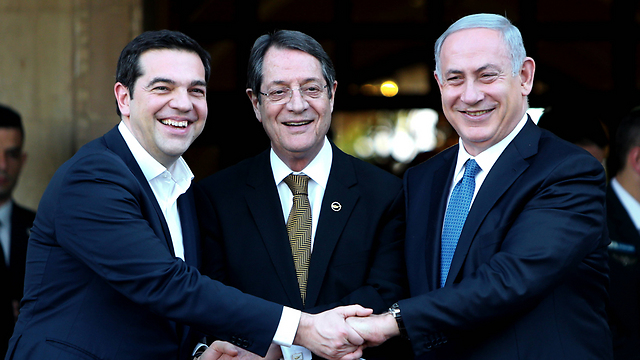
Surprisingly, until the IDF decided to send a permanent military attaché to Greece last year, Israeli military relations were managed by the military attaché in Romania. The current attaché in Greece, Col. Yuval Jerbi, has become an expert in all things related to the Greek military, politics, global and regional interests, and has an in depth knowledge of the waves of refugees washing up on Greek shores. From an infantry battalion commander in the Golani Brigade, this former warrior has become a professional diplomat, but in uniform.
His commander, Brig.-Gen. Avi Peled - the head of the Foreign Relations Unit - was the Golani Brigade commander (specifically during Operation Cast Lead) before he switched over to become a military diplomat. Before becoming the head of Foreign Relations, he served as the Israeli military attaché in India for four years.
In addition to the "high importance" countries, there are approximately 30 other nations that the IDF has an interest in investing efforts in, one way or another, including countries whose relationship with Israel must remain a secret. This list of countries is expected to only get longer within the coming year.
As of right now, there are 16 "ambassadors" - military attachés - who work with over 30 countries on a regular basis. This expansion also led, among other things, to the appointment of a military attaché to the continent of Africa - Col. Aviezer Segal - a continent where there has been no attaché in years. However, he will only physically be in Africa when he is needed, and will carry out the majority of his duties from Israel. This turning is the result of a growing demand from African countries to share knowledge and measures with the IDF on dealing with global jihad.
The Foreign Relations Unit has expanded and shrank throughout the years, according to the wills of the commanders, the needs of the military, and the budget. At first, the IDF didn't regard military diplomacy as something terribly important that required any level of expertise beyond a basic table manners and a decent grasp of English. Until 2006, the Foreign Relations unit was under the purview of the Operations Directorate. Manpower cuts trimmed the unit down to a platoon in the Planning Directorate.
Over the past year, in light of recent regional developments, IDF Chief of Staff Eisenkot's worldview has changed, and IDF began recognizing the importance of "soft power" - meaning diplomacy and public relations - the unit has grown back to being a brigade, which now has the additional responsibility of managing the relationship with the Jordanian and Egyptian militaries.
Within the next year, the responsibilities of the Foreign Relations Unit will expand further to include managing the relationship with international agencies such as UN peacekeeping forces, and the international relations branches of the Israeli Air Force and Israeli Navy.
When it comes to relations with the UN, it doesn't necessarily mean UNIFIL peacekeepers on the border with Lebanon or UNDOF peacekeepers on the border with Syria. The UN has peacekeeping missions in at least ten countries in Africa. While the relationship between Israel and the UN is not exactly a love story, when their peacekeepers need weapons, ammunition, or tactical training against jihadist guerillas - they might secretly come to Israel through the efforts of military diplomacy.
Sometimes, the relationship with the UN is used to send messages to the enemy. For instance, Israel was worried of an all out confrontation breaking out against Hezbollah after the assassination of Samir Kuntar last December. During meetings in Naqoura between Brig.-Gen. Peled, the head of UNIFIL, and a representative from the Lebanese Armed Forces held around the time of the assassination, Peled passed a clear message to the Lebanese Armed Forces representative, who then passed the message on to Hezbollah. In these types of instances, the foreign relations mechanism is crucial in calming a potentially explosive situation.
While today the situation room for the military diplomats is part of the Planning Directorate, in the future, it will become part of the "pit" from where the Operations Directorate performs its duties. A school for military diplomacy will also be established in order to train the next generation of officers and NCOs, which means the IDF has finally recognized the fact that diplomacyis a profession, and it is not enough to be a talented officer in an infantry battalion to be an effective military diplomat. In other western militaries, the attaché is usually someone who has studied military diplomacy, and many times it is their only career.
The IDF, as usual, is counting on the natural talent and improvisation ability of its senior officers. Sometimes, that also works.
.










